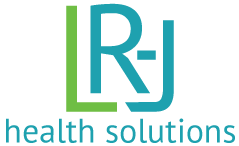Our lives have morphed over the last few months. That’s an understatement, right?!
We’re staying at home as much as possible, always assessing the risks of contracting the virus, trying to help others as we all deal with our “new normal,” and continuing to work our jobs, whether at home or in the workplace.
We don’t want to get physically sick, of course, and we must also focus on protecting our mental health. Just the fear of getting sick can add exponentially to our stress levels. Not to mention the uncertainty we’re all living, wondering when things might return to “normal.”
For those of us lucky enough to have internet access, we’ve turned over more and more of our lives to the web, which brings us many conveniences.
We’re able to pretty much buy anything online and have it shipped and/or hand-delivered to our door. Groceries, medicines, home goods, clothes, disinfectants, pet toys, building supplies, etc., show up on our front porch in only a day or two.
For many of us, even our work lives are online. Which means we don’t have to deal with traffic-filled commutes or planning our wardrobe, resulting in less stress in that area of our lives.
Essential workers in healthcare and retail, however, can’t work from home and have additional stressors just from the nature of being exposed to lots of people every time they go to work.
With schools soon opening across the U.S., many parents struggle with whether to send their children to school or have them study online. That decision alone is a stress inducer!
If parents send their child to school, they risk the transmission of Coronavirus to their entire family. If parents choose online learning, they must be present to assist their child… while also managing their own job, which is hard enough for those working from home but becomes extremely difficult for essential workers.
What a perfect recipe for stress, for both adults and children.
We know stress impacts our physical health. Long-term stress can impair our immune system, which is not ideal while we’re all trying to avoid the virus.
Let’s be diligent about protecting our mental health these days by noticing our stressors and working to reduce them.
No one really knows how long this situation will last, so we can hunker down and put some coping strategies in place to help us deal long term.
The CDC* offers the following coping advice:
- Know what to do if you are sick and are concerned about COVID-19
- Know where and how to get treatment and other support services and resources, including counseling or therapy (in person or through tele-health services)
- Take breaks from watching, reading, or listening to news stories, including those on social media; hearing about the pandemic repeatedly can be upsetting
- Take care of your body
- Take deep breaths, stretch, or meditate
- Try to eat healthy, well-balanced meals
- Exercise regularly
- Get plenty of sleep
- Avoid excessive alcohol and drug use
- Make time to unwind; try to do activities you enjoy
- Connect with others; talk with people you trust about your concerns and how you are feeling
- Connect with your community- or faith-based organizations; consider connecting through social media, or by phone or email
Sometimes, acceptance is the greatest favor we can do for ourselves. If we accept the new world we’re now living in instead of fighting against it, we may find some peace of mind in the midst of this pandemic.
Peace of mind could go a long way toward helping us remain healthy.
At LRJ Health Solutions , keeping you and your family safe, healthy, and covered continues to be our top priority.
Please don’t hesitate to contact us so we can discuss your healthcare provider’s specific emergency plans to ensure you have access to the prevention, testing, and treatment needed to help fight COVID-19.
LRJ Health Solutions is proud to serve all communities in Arizona and California, where we’re licensed. We are confident that collectively we can overcome this challenge and we’re committed to doing our part to keep our communities healthy and protected.
We can also be reached via phone (480.779.8253) or email (laura@ljrhealthsolutions.com) and look forward to hearing from you.
Source:
* https://www.cdc.gov/coronavirus/2019-ncov/daily-life-coping/managing-stress-anxiety.html



Recent Comments